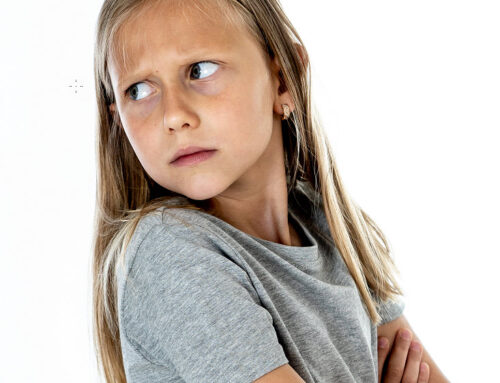Allaying your child’s concerns about COVID-19. The Essential Tips to ensure your child feels Safe and Secure during this worrying time.
Ask questions to the age level of your child
Ask younger children, “Have you heard the news about a new coronavirus that’s going around?” This allows you to learn how what your child knows and understands. Older children can be asked, “Are kids and teachers at school talking about coronavirus? Ask what they are saying?” Asking and listening allow you to correct or authenticate the correct information as you understand it.
Follow the lead of your child
Some kids may want to spend time talking; others won’t. If your child isn’t interested or don’t ask a lot of questions, just let them know if they have any questions ask. Therefore, never pre-empt a statement such as ‘if you get worried sweetheart I am here” as this becomes an expectation they will get worried.
Helping your children feel safe
Children may question the reason they view scenes on tv or personally at supermarkets; they may hear school are closing or many people becoming ‘infected’. Depending on the age of the child, this may cause considerable concern.
Our children are concerned more about their safety and that of their parents and family members.
Remind them of sanitising behaviour to protect themselves and all family members. Remind them children do not become sick yet they must continue to wash their hands to protect older people. This helps them feel they are doing something proactive to help. Advise them how the virus affects typically much older people and those who have an immune condition or already sick. Don’t offer more detail than your child is interested in.
What if I can’t Answer their Question?
Tell them they have asked a great or interesting question and you are not sure. Use their question as a chance to find out together. Check the Department of Health website for up-to-date, reliable information about coronavirus (COVID-19). Having the most up to date facts can help alleviate confusion, especially for older children.
Speak calmly and reassuringly
Explain that most older people who get the virus many feel like they have a cold or flu. Children sense if a parent is worried. When speaking about the coronavirus of news reports, speak in a calm and light-hearted voice as this annoying virus will finish soon.
Limit Media Exposure
With so much bad and sensationalised stories, the news can be a dangerous place for children. Have the children learn from you.
Avoid taking children to the supermarket
Children seeing empty shelves or hearing parents concern when they are unable to purchase essentials can escalate the child’s fear and anxiety.
Allow children an opportunity to share their feelings
It’s natural for a child to worry, especially of the unknown. Questions such as “Could I be next? Could that happen to me? What happens if you get it, will you die?” Let your children know that kids don’t seem to get as sick and healthy adults may feel like they have the flu. Let them know you are always happy to talk to them and answer questions. Remind them they can always speak to you if they feel sad or fear.
Help Kids Feel they have Control
Teach kids the importance of getting good sleep to rest their body, eating healthy and washing their hands well and often. Explain how these actions can help them stay strong and healthy. Explain that regular hand washing also helps stop viruses from spreading to others. Be a role model and let your kids see you washing your hands and regularly wiping down surfaces with disinfectant.
Explain what is occurring to keep everyone safe and healthy
Children can be reassured to know that hospitals and doctors are prepared to treat people who may get sick. Older children may be comforted to know that scientists are working diligently to develop a vaccine. If schools do close explain how this is being proactive and how lucky the kids are to get some time off at home with you.

Why are people panic buying?
People panic buy to feel a sense of control over the situation occurring, and can be the only sense of control they can feel, by stockpiling. Explain to the children some people may not properly understand and it is great you are all taking proactive steps instead of reactive behaviours. Describe to them about being proactive by reiterating the steps you are taking to remain safe and well. If items are not available at the supermarket, you are sure you can get it soon, as sometimes shops run out of things.
Explaining a death from the virus
If your child asks about dying from the coronavirus, as some have already, tell them that death from the virus is very rare, despite what they might hear. Explain it is mainly very old people and those who are not healthy. By eating well and taking handwashing precautions can prevent the spread of any virus germs, so use it as a simple reminder to be vigilant and responsible.
If your children are worried about family members or grandparents
If children worry about their grandparents, suggest they call or Skype relatives. Doing this can help children feel reassured. Speak with family members prior to the call to recap the same information you have been saying to remain consistent for the children.
Describe that it’s normal to feel a little stressed at times
Recognising these feelings and knowing that stressful times pass, and life gets back to normal can help children build resilience.
Reassure all is being done
Reassure your children that the very best of scientists around the world are actively working on a cure for this annoying virus. It is essential children know that forward movement to resolve the problem is at hand. Let them know the government is making good choices and their direction is considered and best.
Children react to parents’ stress and anxiety
When parents can remain calm and in control, this will flow onto the children. While serious, regard it as more a temporary annoyance that will pass, especially if good healthy living and cleaning are followed. Therefore, if a parent is feeling excessively anxious, please speak to a professional to help your stress levels reduce as much as possible. Stress negatively affects our immune system, so lowering stress is essential.
You can encourage your children to help stop the spread of COVID-19 by teaching them to do the same things everyone should do to remain healthy. Steps to follow includes:
- Wash hands often using soap and water
- Avoid being near people who are sick
- Let them see you clean and disinfect high-touch surfaces
- Wash clothes in warm water and finish off in dryer to kill any virus germs
- Wash toys in accordance with the manufacturer’s instructions.
You can find additional information on preventing COVID-19 at Prevention for 2019 Coronavirus.
Any parent wanting to speak the right way to their child, read Communication Harmony to help get the message across clearly and concisely. An essential guide to eliminate any drama with helping to create harmony at home.
Read more from LifestyleDr Karen Phillip


 Grab your copy today
Grab your copy today



